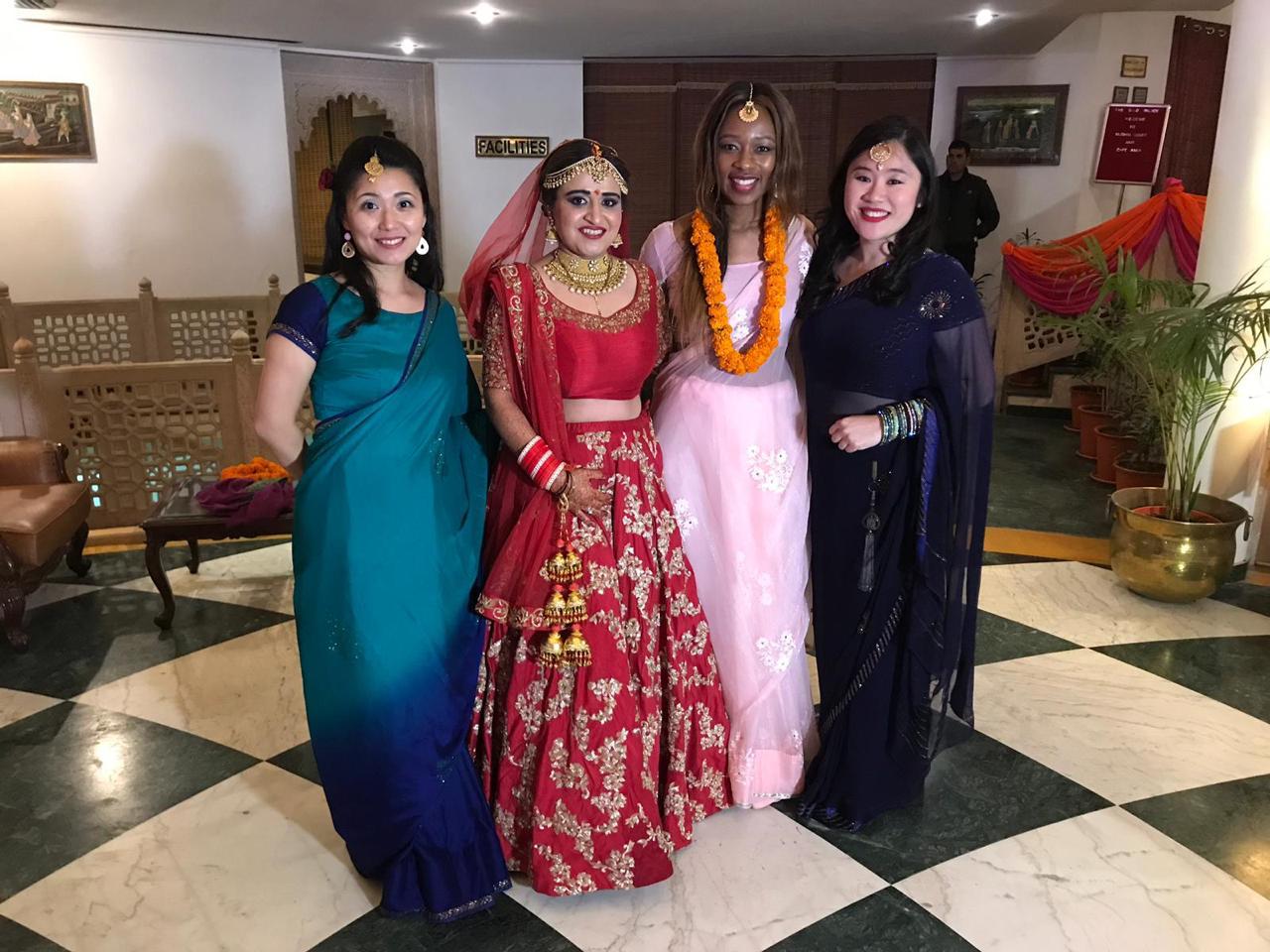Sinenhlanhla Khalipha Zulu
Zulu and South African
My name Sinenhlanhla which means ‘we are lucky’ in my language IsiZulu. This name is very close to my heart because it was given to me by my parents who felt blessed to have me, so, it’s been a huge part of my identity. I am South African by nationality. But “South African” could mean a wide variety of things. So, to be a bit more specific, I would describe myself as umZulu.
I love to travel and travelling has made me realise that very few people fit neatly and squarely into the identity classifications that society has created. And that sometimes identity is nothing more than a state of mind. Identity is also a fluid concept, changing and adapting with time and influenced by the choices we make.
Photo 1: Nomasingili - the one with braids
When I was young, my mother made me a doll: Nomasingili (meaning the one with braids). I loved her dearly and kept her for years. I spent endless hours plaiting and unplaiting her hair, changing her hairstyles according to my mood. I think it must have been during these years, playing with my doll’s look and dressing her up, when I realised that how we look (especially as Africans) plays an integral part of our identity and can influence how we are received and perceived.
Photo 2: Identity vs. Identify
Notwithstanding cultural and national identity differences, values are what truly matter in the formation of friendships, and going to back to school full time in 2017 reaffirmed that for me. Although, it could be argued that certain cultures espouse certain values, sometimes, your closest friends are going to look nothing like you. To have the same racial, national or cultural identity as someone is not a firm guarantee that you will be able to identify with said person, even if they are as black as you.
Photo 3: Proud of my heritage
My father conducted a traditional African ceremony for my sisters and I - a beautiful Zulu ceremony called “Umemulo” done exclusively for [those who identity as] Zulu girls. I had never felt prouder of, and grounded in my cultural identity and my heritage than on this day. For years, I’ve wanted to become more of a global citizen and get to know other cultures and experience different nations. But this day gave me the opportunity to celebrate my own identity. Zulu people are a proud nation with a rich history and I’m happy that some of our customs and practices have survived many years of colonisation and apartheid. And I think we should celebrate our customs more as Africans: they are part of our identity.
Photo 4: Identity cards
Government issued identity cards give a good summary of the different components of what constitutes our identities. Where and when we were born, our gender assigned at birth, our names, surnames and our facial features. This is all done for good reasons: to achieve national order and to make it easier to govern a nation. However, what I think identity cards don’t reflect is who we truly are and the things we value (corny but true). At the end of the day, in addition to the [sometimes contestable] details listed on a government issued-card, identity is a choice and also a state of mind.
Take away…
Remain self-empowered to choose and make your own identity.



